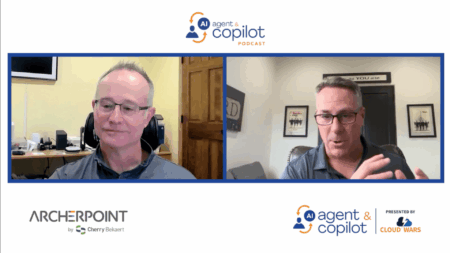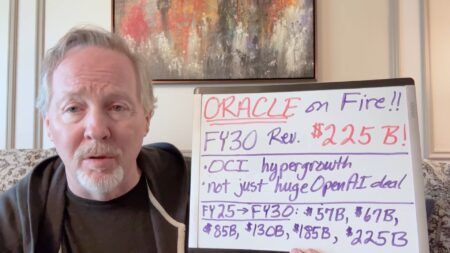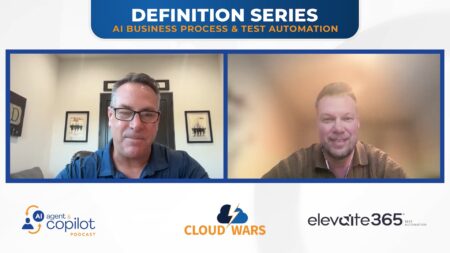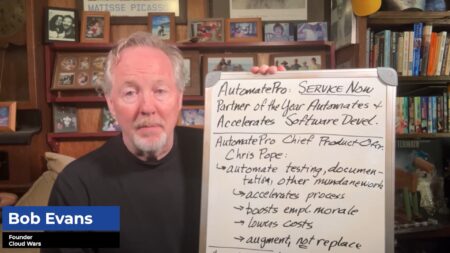As a CFO, do you view artificial intelligence as “I could take it or leave”, or “It’s a must-have”? Your view of AI may very well determine the culture of your company and define your leadership abilities.
Four Facets
First, if you haven’t read the “Future Office of the CFO Digital Journal“, then stop right now and check it out.
In the Journal, Bob Evans does a masterful job of outlining “The Four Faces of the Modern CFO”. Underneath these is the AI layer. AI is meant to surface insights and help make sense of data about customers, employees, finances, behaviors, operations, sales, and more.
Data Champion
Many people don’t have the insights that a CFO has access to. But, there is more to it than just having access. It requires purposeful intent to take the output, the anomalies, and the patterns, and interpret them to define something new. The convergence of AI and Data needs a champion out front – the CFO.
Chief Acceleration Officer
If you think that declaring “We have AI tools and we are using them!” will garner respect, then you’re deceiving yourself. This attitude is like thinking that you can cut your grass with scissors.
Unrealistic expectations kill acceleration. Period.
If you are striving towards the aspirational goal of Chief Acceleration Officer, you should have a sense of urgency that permeates your decisions. Use AI to your advantage to equip your employees, outcompete your competition, predict customer behaviors, and leverage the strengths of your peers to be purposefully different.
Customer Evangelist
Some may view customers as a “necessary evil”, while others treat customers like numbers.
If this is you. Stop.
Your goal as a CFO is to see more than the bottom line. Customers directly impact a company.
Good point. We will add that to all cars in one of the upcoming software releases.
— Elon Musk (@elonmusk) August 19, 2017
A Customer Evangelist is the internal and external voice of the customer. They understand the tone, the need, the expectations and can strategically invest in the people and technology to make things happen.
Culture Shaper
Pop culture. Counterculture. These words bring to mind certain images in your mind. And, based on each person’s life experiences, these will mean different things.
So, if something could mean multiple things, how can you hope to shape your company culture? In order for a CFO to see outside the norms, it requires tight collaboration with others in technology, operations, and lines of business.
Additionally, CFO leaders know how to tell the story with data – defining the narrative of the organizational culture.
Closing Thoghts
Check out the interactive visualization below. Now, as a CFO, how would you tell the story with the data? How would this shape the culture? How would this change your perspectives on your customers?







